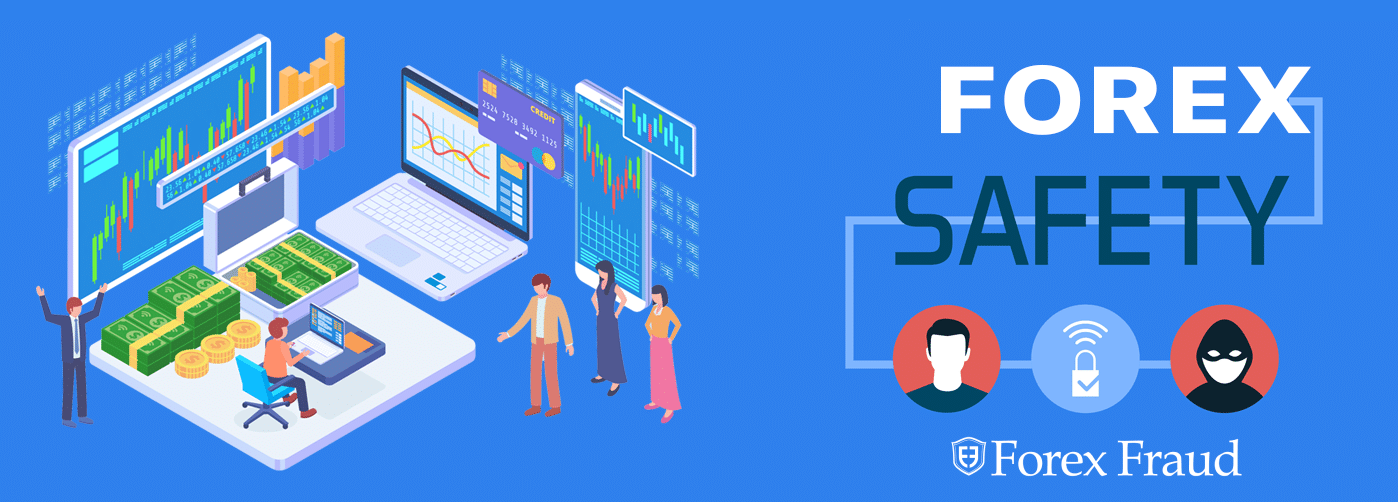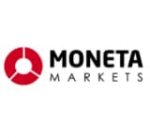Trusted Forex Broker Reviews

Picking a good forex broker is the first, and perhaps most important, step when you decide to start your forex trading journey. An efficient, reliable broker with the right features can help make your forex trading activities more straightforward and enjoyable, whereas picking the wrong broker can be a disaster. There are plenty of scam forex brokers out there only too happy to take your money. There are also others who may not be scammers but who may not be the best forex broker for you.
Some brokers have many hidden costs and drawbacks that might not become apparent until you start trading with them. Others may be perfectly good brokers but better for more experienced traders due to things such as high deposit limits or a lack of education and training resources. Our forex broker reviews focus on finding safe and trusted brokers and giving you all the information you need to decide which broker is best for you, given your needs, requirements, budget, and trading experience.
Our Top Rated Forex Broker
This secure framework acts as a base for some of lowest cost trading in the market with trade execution backed up by some very impressive behind the scenes infrastructure designed to offer the best access to the financial markets. Read the full review of Tickmill
How to Choose a Safe Forex Broker
When choosing the best forex broker for you, you must check that the brokers you are considering are regulated by a major governing body such as the FCA or CySEC. Most brokers will state their regulating body on their website but remember that a scam broker will claim to be regulated even if it is not. Go directly to the regulator’s site and ensure the broker is listed there. Some scam brokers will try to clone or imitate the site of a regulated broker, so always check that the broker site uses the same URL and contact information as the broker listed on the regulator’s site. You’ll also want to check that the broker you choose uses good site security to store your data safely and offers client compensation and deposit protection.
Safest Forex Brokers 2024
When we publish our forex broker reviews, we check to make sure that the brokers we recommend are the safest available. We ensure they are licensed and regulated and that there are no obvious red flags that you should be wary of. Our list of top brokers shows the ones we consider safest to trade with. We review all different kinds of brokers, so you will find reviews on our site that cover many more brokers that did not make the top list. There are various reasons that we choose not to include brokers on our top list of safe brokers. You can still read our reviews of them if you would like to, comment about them or share your experience dealing with them.
| Broker | Features | Min Deposit | EURUSD Spread | ||
|---|---|---|---|---|---|
 Between 74-89 % of retail investor accounts lose money when trading CFDs
US Clients: No Regulated : Yes Between 74-89 % of retail investor accounts lose money when trading CFDs
US Clients: No Regulated : Yes
|
|
$200 | NDD 0.09 / Standard 0.69 |
Sign
Up
Between 74-89 % of retail investor accounts lose money when trading CFDs
|
|
 Your capital is at risk
US Clients: No Regulated : Yes Your capital is at risk
US Clients: No Regulated : Yes
|
– Flexible leverage up to 500:1 |
$200 | From 0.1 | ||
 Your capital is at risk
US Clients: No Regulated : Yes Your capital is at risk
US Clients: No Regulated : Yes
|
– 40% New Member Bonus
|
$100 | Fixed |
Sign
Up
Europe* CFDs are complex instruments and come with a high risk of losing money rapidly due to leverage. 79% of retail investor accounts lose money when trading CFDs with this provider. You should consider whether you understand how CFDs work and whether you can afford to take the high risk of losing your money.
|
|
 * 82% of retail investor accounts lose money when trading CFDs with this provider. You should consider whether you can afford to take the high risk of losing your money
US Clients: No Regulated : Yes * 82% of retail investor accounts lose money when trading CFDs with this provider. You should consider whether you can afford to take the high risk of losing your money
US Clients: No Regulated : Yes
|
|
100GBP/AUD/EUR/USD | variable |
Sign
Up
* 82% of retail investor accounts lose money when trading CFDs with this provider. You should consider whether you can afford to take the high risk of losing your money
|
|
 Your capital is at risk
US Clients: No Regulated : Yes Your capital is at risk
US Clients: No Regulated : Yes
|
|
$5 | From 0.0 pips | ||
 Your capital is at risk
US Clients: No Regulated : Yes Your capital is at risk
US Clients: No Regulated : Yes
|
– CySEC, FCA, FSCA, SCB Regulated |
$100 | |||
|
|
|||||
*Broker offers variable spreads which are subject to fluctuating market conditions. Spreads tend to be tight during times of deep liquidity but can also widen significantly during times of low liquidity.
Want to be featured on this broker list? Use our contact form here.
FCA Regulated Brokers
London is one of the world’s major financial centres, and many forex brokers are based in the UK capital. All UK brokers should be registered with and licensed by the Financial Conduct Authority (FCA), one of the strictest regulatory bodies. FCA brokers will be very aware of best business practices and related compliance issues, which is another reason to choose a UK broker, if possible. One must, however, be careful when selecting a broker that claims to have offices in London. The marketing aspect of this location has caused many overseas brokers to set up a “shell” presence in the UK to gain your trust, but without the benefits offered by genuine UK-based brokers. If you prefer to use a UK broker, then make sure they are headquartered in London and have a significant presence there.
| Broker | Features | Min Deposit | EURUSD Spread | ||
|---|---|---|---|---|---|
 Between 74-89 % of retail investor accounts lose money when trading CFDs
US Clients: No Regulated : Yes Between 74-89 % of retail investor accounts lose money when trading CFDs
US Clients: No Regulated : Yes
|
|
$200 | NDD 0.09 / Standard 0.69 |
Sign
Up
Between 74-89 % of retail investor accounts lose money when trading CFDs
|
|
 * 82% of retail investor accounts lose money when trading CFDs with this provider. You should consider whether you can afford to take the high risk of losing your money
US Clients: No Regulated : Yes * 82% of retail investor accounts lose money when trading CFDs with this provider. You should consider whether you can afford to take the high risk of losing your money
US Clients: No Regulated : Yes
|
|
100GBP/AUD/EUR/USD | variable |
Sign
Up
* 82% of retail investor accounts lose money when trading CFDs with this provider. You should consider whether you can afford to take the high risk of losing your money
|
|
|
|
|||||
CySEC Regulated Brokers
Many EU brokers are regulated by the Cyprus Securities and Exchange Commission (CySEC), which is another strict regulatory body. Cyprus is often seen as the forex trading capital of Europe. Due to low corporate tax rates and excellent infrastructure, it has become a popular place for forex brokers and other financial companies to be based. CySEC regulates financial brokers in the country and is considered to provide a safe and efficient regulatory framework that is fully aligned with EU directives and European MiFID regulations. CySEC brokers are generally safe to trade with, but again, make sure they are registered with CySEC and not just falsely claiming to be.
| Broker | Features | Min Deposit | EURUSD Spread | ||
|---|---|---|---|---|---|
 * 82% of retail investor accounts lose money when trading CFDs with this provider. You should consider whether you can afford to take the high risk of losing your money
US Clients: No Regulated : Yes * 82% of retail investor accounts lose money when trading CFDs with this provider. You should consider whether you can afford to take the high risk of losing your money
US Clients: No Regulated : Yes
|
|
100GBP/AUD/EUR/USD | variable |
Sign
Up
* 82% of retail investor accounts lose money when trading CFDs with this provider. You should consider whether you can afford to take the high risk of losing your money
|
|
 Between 74-89 % of retail investor accounts lose money when trading CFDs
US Clients: No Regulated : Yes Between 74-89 % of retail investor accounts lose money when trading CFDs
US Clients: No Regulated : Yes
|
|
$200 | NDD 0.09 / Standard 0.69 |
Sign
Up
Between 74-89 % of retail investor accounts lose money when trading CFDs
|
|
 61% of retail CFD accounts lose money
US Clients: No Regulated : Yes 61% of retail CFD accounts lose money
US Clients: No Regulated : Yes
|
|
$50 (varying by Country) | from 1 |
Sign
Up
*Don’t invest unless you’re prepared to lose all the money you invest. This is a high-risk investment and you should not expect to be protected if something goes wrong. Take 2 mins to learn more
|
|
 Your capital is at risk
US Clients: No Regulated : Yes Your capital is at risk
US Clients: No Regulated : Yes
|
|
$5 | From 0.0 pips | ||
|
|
|
$200 | From 0.0 Pips | ||
|
|
|||||
ASIC Regulated Brokers
If you are forex trading in Australia, you will find that the Australian Forex, CFD, and Cryptocurrency landscape is intricate, with at least three different types of brokerages offering their services. There are unlicensed, unregulated brokerages with a global reach whose services may also be accessible to Australian traders. Then, there are financial service providers not based in Australia but licensed by the Australian Securities and Investments Commission (ASIC) to sell their products and services there. Finally, there are Australian-based operations, which are entirely under the authority of ASIC. If you are looking for a forex broker in Australia or one that offers services for Australians, then check out our ASIC brokers page.
| Broker | Features | Min Deposit | EURUSD Spread | ||
|---|---|---|---|---|---|
 Between 74-89 % of retail investor accounts lose money when trading CFDs
US Clients: No Regulated : Yes Between 74-89 % of retail investor accounts lose money when trading CFDs
US Clients: No Regulated : Yes
|
|
$200 | NDD 0.09 / Standard 0.69 |
Sign
Up
Between 74-89 % of retail investor accounts lose money when trading CFDs
|
|
 Your capital is at risk
US Clients: No Regulated : Yes Your capital is at risk
US Clients: No Regulated : Yes
|
|
$200 | From 0.1 pips | ||
 Your capital is at risk
US Clients: No Regulated : Yes Your capital is at risk
US Clients: No Regulated : Yes
|
– 40% New Member Bonus
|
$100 | Fixed |
Sign
Up
Europe* CFDs are complex instruments and come with a high risk of losing money rapidly due to leverage. 79% of retail investor accounts lose money when trading CFDs with this provider. You should consider whether you understand how CFDs work and whether you can afford to take the high risk of losing your money.
|
|
 Your capital is at risk
US Clients: No Regulated : Yes Your capital is at risk
US Clients: No Regulated : Yes
|
|
No minimum deposit | From 0.0 pips | ||
|
|
|||||
FSCA Regulated Brokers
The Financial Sector Conduct Authority (FSCA) is an independent institution established by statute to oversee the non-banking financial industry within South Africa, including forex brokers and many other kinds of brokers. The FSCA operates within South Africa with the mandate to enhance the efficiency and integrity of financial markets, promote fair customer treatment, provide financial education and financial literacy, and assist in maintaining financial stability. The FSCA regulates brokers based in South Africa and those with a presence in the country or offering services to residents. If you are a forex trader resident in South Africa, it is recommended that you trade with a registered FSCA broker.
| Broker | Features | Min Deposit | EURUSD Spread | ||
|---|---|---|---|---|---|
 Your capital is at risk
US Clients: No Regulated : Yes Your capital is at risk
US Clients: No Regulated : Yes
|
– Regulated by FCA, FSCA, CMA and FSC |
$200 | ECN 0.1, Standard 1.6 | ||
 Your capital is at risk
US Clients: No Regulated : Yes Your capital is at risk
US Clients: No Regulated : Yes
|
– 40% New Member Bonus
|
$100 | Fixed |
Sign
Up
Europe* CFDs are complex instruments and come with a high risk of losing money rapidly due to leverage. 79% of retail investor accounts lose money when trading CFDs with this provider. You should consider whether you understand how CFDs work and whether you can afford to take the high risk of losing your money.
|
|
 Your capital is at risk
US Clients: No Regulated : Yes Your capital is at risk
US Clients: No Regulated : Yes
|
$50 | 0.02 | |||
 * 82% of retail investor accounts lose money when trading CFDs with this provider. You should consider whether you can afford to take the high risk of losing your money
US Clients: No Regulated : Yes * 82% of retail investor accounts lose money when trading CFDs with this provider. You should consider whether you can afford to take the high risk of losing your money
US Clients: No Regulated : Yes
|
|
100GBP/AUD/EUR/USD | variable |
Sign
Up
* 82% of retail investor accounts lose money when trading CFDs with this provider. You should consider whether you can afford to take the high risk of losing your money
|
|
|
|
|||||
More Safe Forex Broker Listings
There are various reasons why you may want to trade with a broker in a particular country or with a specific type of broker (such as a MAM broker or a PAMM broker). You may also wish to trade with a broker that offers Islamic accounts, for example, which do not charge or offer interest on positions held overnight. Here are some of our recommended brokers in categories that might interest you.
- Islamic forex brokers
- Australian forex brokers
- UK forex brokers
- South African forex brokers
- MAM brokers
- PAMM brokers
What to Look for in a Safe Forex Broker
There are several things to look out for to help ensure that any broker you consider is safe and reputable.
Regulation
Most reputable online forex brokers are licensed and regulated by one of the main financial regulatory agencies operating in the country where they are based. Sometimes, they will even be regulated by more than one agency. Such regulation provides you with the security of knowing the broker’s operations are being overseen by an independent authority to keep the business honest and protect client interests. We strongly advise that all beginner traders only consider trading with a regulated broker.
Data Security
When you enter vital personal information online, it can be subject to falling into unfriendly hands that may use it for personal gain. With this in mind, make it a top priority to choose a broker that safely collects, stores, and processes your personal information. Brokers should encrypt all data entered into online forms using industry-standard SSL encryption or better. Another critical issue involves the safe storage of data so that it will not be lost in the case of a disaster. Many online forex brokers use duplicate data farms with high security to assure the safety of your account information.
Commissions, Fees and Spreads
Sometimes brokers are not content just to have you dealing on their spreads. They might charge a commission or fee for each transaction in this case. Sometimes these are calculated on a per-transaction basis, or a volume dealt basis. Additional fees might be involved in making withdrawals or deposits. There may also be admin or inactivity fees, so check that information to minimise your overall costs. If you are trading on spreads alone, be aware that trading strategies can become unsuccessful if your account does not have access to competitive spreads. The spread is the difference between the bid price and the offer price for a particular currency pair. It should be no greater than five pips in the majors and major crosses, with wider spreads often seen in the minor crosses and exotic currencies.
Risk management tools
Some brokers offer better risk management tools than others. For example, take a close look at the order types offered and the chance to conduct automated trading, and set limits around your open positions. Most forex brokers will provide the basic market, stop and limit order types. Some brokers also offer support for OCO (one-cancels-the-other) and trailing stops. If either of these more specialised order types would be suitable for your trading plan, then be sure that your chosen broker supports them and that you fully understand how these different order types work and their limitations. With some brokers, you can access negative balance protection, manage your risk per trade and see your risk reward ratio. These are all useful tools to have.
Customer Support
Those new to forex trading will want to have better access to both dealing support and technical support. See what services each broker provides and whether they will suffice for your purposes. Look at the support channels available and the hours that support channels are open, ensuring this will work for you.
Educational resources
Newer traders often require educational materials about the forex market and trading, in general, to get started trading forex on the right foot. If this is important to you, research what the brokers you are considering have to offer in this regard. Also, many forex brokers provide sophisticated news feeds, proprietary market commentary, and other timely information that can help you trade more successfully.
Leverage and Margin
Leverage refers to how much of a position you can control with a certain amount of funds. Forex brokers currently offer leverage rates of as high as 500 to 1 in some regions. This means that you can control a $50,000 trading position with just $100 allocated from your portfolio. Naturally, amplifying your risk by using leverage can result in more significant losses, as well as more considerable gains, so be sure to use leverage wisely and avoid trading beyond your means. You should also be aware that some regulatory bodies limit the amount of leverage that can be offered to protect traders from large losses.
When it comes to margin requirements, even though forex transactions are exchanges and not purchases of an asset like a stock or commodity, when the exchange rate moves, it creates credit risk for the counterparty showing a gain on the transaction. As a result, most forex brokers require that their clients place a certain amount of funds on deposit to cover such potential losses. This is known as the broker’s margin requirement.
Since margin requirements and the leverage offered vary among brokers, you will want to ensure that the broker you choose has guidelines that work for you. Be aware that some brokers automatically close out trading positions when the amount of margin in your account is exceeded by trading losses or according to other criteria, so be sure to understand the implications of such policies for your trading activities.
CFDs – Contracts for Differences
CFDs are a popular way to trade and offer several advantages to traders (and brokers). A CFD is, in essence, a futures contract arrangement between a broker (the CFD provider) and a trader (the client). The object is the difference between the current value of a traded asset (which can be just about anything, given the impressive market coverage of this financial derivative) and its value at the end of the contract. Trading with CFDs can be profitable, but it is a complex and high-risk way to trade. There is the possibility of rapidly losing money, so if you choose to trade with a CFD broker, be aware of the risks and use good trading discipline and risk management to protect yourself and your funds.
If you would like to look at all our forex broker reviews, check out the list below.
| Finmarket – Read review and comment | ALB- Read review and comment |
| Oinvest – Read review and comment | Markets.Com- Read review and comment |
| Just Forex – Read review and comment | IronFX – Read review and comment |
| XM – Read review and comment | FX Primus- Read review and comment |
| Axitrader – Read review and comment | Investous – Read review and comment |
| Forex4You – Read review and comment | AAFX Trading- Read review and comment |
| Excentral – Read review and comment | Swiss Quote- Read review and comment |
| Asset Capital Business – Read review and comment | Eagle Fx- Read review and comment |
| FP markets – Read review and comment | Naga Markets – Read review and comment |
